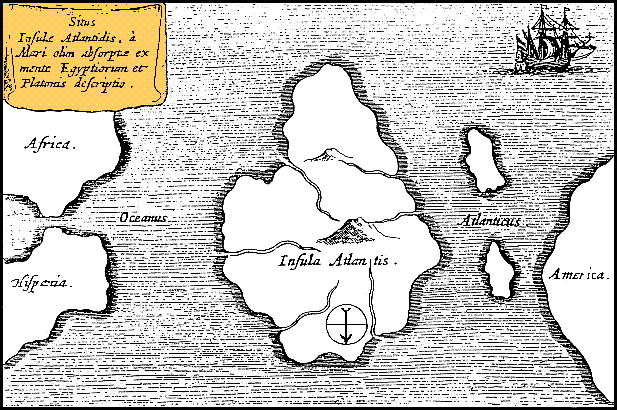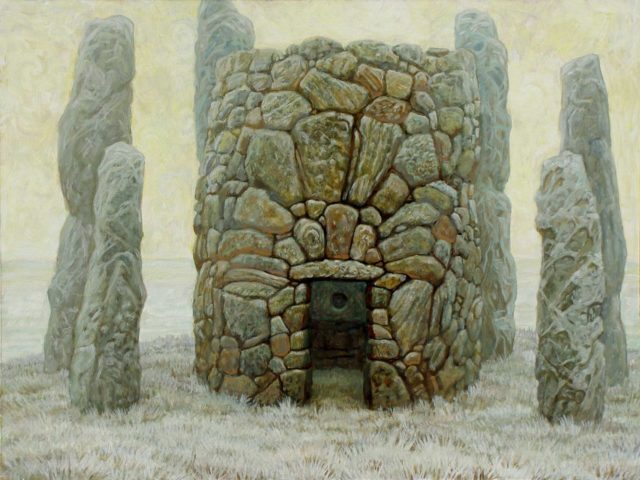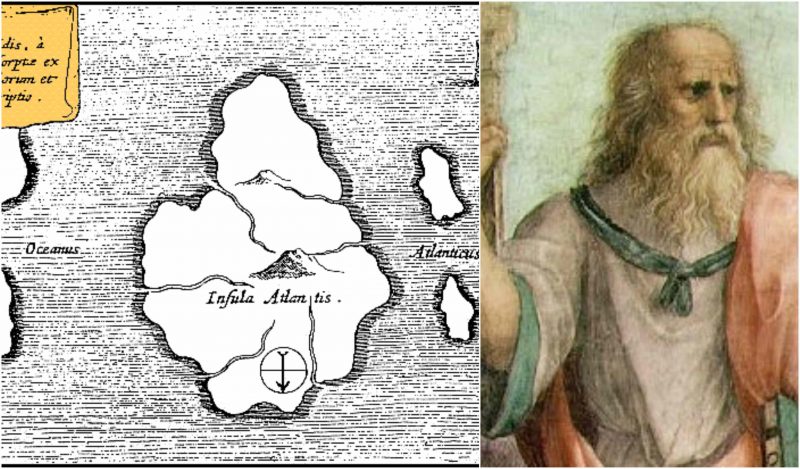Very few people are aware of the fact that the famous philosopher and arguably the father of the modern philosophical framework Plato not only grappled with complex philosophical ideas but also told the tales of an ancient advanced civilization. Most of us are familiar with the name ‘Atlantis’ and some of us may also know it was a city, but not many of us are actually informed about the whole mist surrounding this proposed ancient city. According to Plato, the ancient naval power inhabited a tiny island in the modern Atlantic Ocean some 9,000 years prior to Plato’s time. Unlike other ancient civilizations, Plato proposed, Atlantis was drowned by a massive flood in one single day explaining the reason why there is not many records left of the lost ancient super power. For centuries, archaeologists and historians wrestled with the ideas and evidence to prove or disprove the idea of the city Plato talked about in his famous dialogues Critias and Timaeus. Following are some of the most widely accepted theories about Atlantis that scientists and experts post Plato, adhered to.
The mid-Atlantic continent that sank

For centuries, experts debated the existence of Atlantis, mostly the side deeming it a legend created by Plato winning the argument since there was never any conclusive evidence to refute the latter. However, the late 19th century brought back the theory of an actual continent in Atlantic that got devoured by a massive flood, named Atlantis. The credit goes to the writer Ignatius Donnelly who argued the case for Atlantis in his famous book ‘Atlantis, the Antediluvian World’. He laid out a number of agreements to support his premise, starting with the existence of seemingly advanced technology found amidst the developing hunter-gatherer men. Donnelly argued that there seemed a correlation between the theories of an ancient advanced technology and archaeological findings that point towards an advanced culture. He also presented the emergence of language and sudden sophistication in terms of cultural norms established in some of the ancient societies. Donnelly concluded that all these pieces come together when one considers that an ancient civilisation must have passed down some part of their knowledge to other cultures, helping them to grow and stabilize. Another fact that cemented Donnelly’s belief and kept him anchored with his theory was that the Atlantic Ocean is only few hundred feet deep, suggesting that there had to be a continent in the past that became a victim of what Donnelly called ‘shifting waters thesis’. Modern oceanographic techniques and theory of plate tectonics have conclusively proven Donnelly wrong shattering his most foundational theorems, however, there are still plenty of folks clinging to his ‘outrageous’ water shifting ideas.
Bermuda Triangle Devoured Atlantis

Donnelly’s works to prove Atlantis an actual continent slowly gave rise to a whole generation of researchers and adventurers, who embarked on a crusade to prove Donnelly right with more research. One of the very first candidates to try to build on Donnelly’s ideas was Charles Blitz, grandson of a famous paranormal hunter and a founder of a famous language school. Charles Blitz did not agree with the Donnelly’s proposed location of the Atlantis, rather he suggested that Atlantis was once a thriving mass of land off the Bahamas. Answering the question of the mysterious disappearance, Blitz pointed towards another strange and controversial phenomenon ‘Bermuda Triangle’. Though he did not try to solve the web of Bermuda Triangle, Blitz simply suggested in the 70’s that Atlantis fell victim to whatever causes ships and planes to disappear in Bermuda triangle.
Atlantis was, in fact, Antarctica

A foreword by the legendary physicist Albert Einstein was not apparently enough to legitimize Charles Hapgood’s shifting crust theory about Atlantis, that he proposed in his 1958 book ‘Earth’s Shifting Crust’. According to Hapgood thousands of years ago Antarctica was a more temperament piece of land located in much northern side then it is believed to have been moved from. This patch of land, Hapgood suggests was home to an advanced civilization, that got buried under ice when the ‘earth’s crust shifted’. As one can imagined modern understanding of the earth’s inner dynamics simply dismantled Hapgood’s claims, pushing his theory in the line up of many Atlantean beliefs.
Atlantis is part mythical part true

The proponents of this particular theory point towards an actual event of mass flooding and are a rare rational entry in the long list of irrational theories. Historic accounts suggest that in 5600 BC the Mediterranean Sea breached the Bosporus causing the Black sea to flood on colossal levels drowning the nearby civilizations under hundreds of feet of water. However, it is believed that the process must have taken place in a matter of months and not in a single day. When the inhabitants were forced to spread out leaving their cities and towns swallowed by the Black Sea, they must have spread the words about the catastrophe greatly exaggerating the tales of the grandeur and splendour of the civilization. These stories then must have travelled all the way to Plato’s era, and without a way to determine the validity of the claims Plato took the legend on its face value and reported as it reached him.
Atlantis was merely the invention of Plato’s wild and Utopian Imagination

The majority of historians and scientists have a consensus on the fictional nature of Atlantis for a number of scientific and logical reasons. A number of Greek writings have been passed on to the modern researchers, and a thorough study of almost all of them leaves scientists certain that there had never been a place named Atlantis. Modern oceanographers equipped with state of the art ocean-floor mapping tools failed to bring in any conclusive evidence to back the Atlantis theory. It is believed that Atlantis was a manifestation of Plato’s inclination towards the idea of a Utopia. Plato created the myth of the demise of the perfect civilization to prove the point that transgressions invite gods’ wrath effectively wiping off the most advanced people in a matter of a day.
